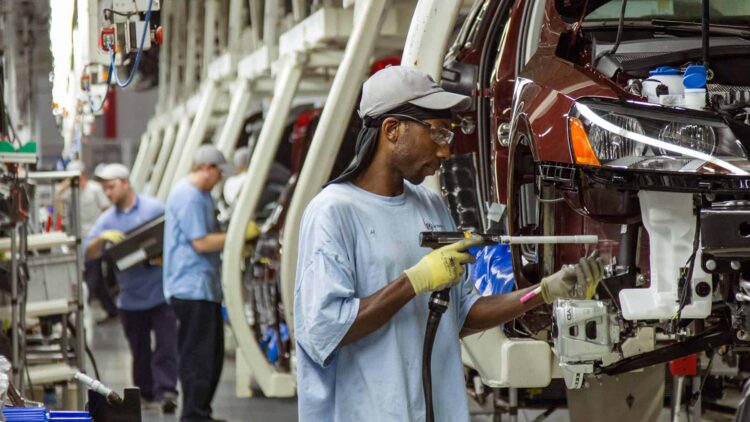According to Ford, its service network has 5,000 open positions, many of which pay more than $120,000 annually. How’s this possible? The business can’t find enough workers with the necessary skills to complete them. Because of a more widespread labor crisis in the United States, Ford CEO Jim Farley is expressing concerns about the consequences for the business and the country’s economy.
He believes it goes beyond a hiring issue. He sees it as a sign that the nation is failing to produce a new generation of skilled workers who stay “essential” components of the economy, like mechanics, electricians, construction workers, and more. In one interview, he stated that the United States is dealing with “something very serious” regarding essential jobs and vocational education.
A six-figure job with zero applicants
Ford’s situation is especially interesting because the jobs they are trying to fill are not entry-level, low-paying positions. These are jobs for skilled mechanics. “We had 5,000 vacancies this morning,” explained Farley. A shop with a lift and tools but no employees
He also highlighted the high salary potential of these positions, saying that “you earn $120,000 a year per position, but it takes five years to learn it. Removing a diesel engine from a Super Duty. It requires a lot of skill. You have to know what you’re doing.”
Those five years of schooling are part of the problem. Achieving true proficiency at the challenging work requires practice, time, and appropriate training. There aren’t as many people in the pipeline who can and will dedicate that time, which worries Farley. In order to retain workers and reduce turnover, he says Ford decided to say goodbye to its previous two-tier wage structure, which paid some workers $17 per hour and others $25 for similar duties.
“We have more than a million vacancies in essential jobs”
Ford’s hiring issues are only one aspect of the bigger problem. Farley noted that there are huge gaps in critical fields throughout the U.S. economy. “We have more than a million vacancies in essential jobs: emergency services, transport, factory workers, plumbers, electricians and construction workers. It’s something very serious,” he said.
“We don’t have vocational training schools. We are not investing in the education of the next generation of people like my grandfather, who had nothing and built a middle-class life and a future for his family.” He added.
His worries are supported by official data. There are hundreds of thousands of open positions in manufacturing, over a million in trade, transportation, and utilities, and almost 200,000 in construction, according to recent reports from the Bureau of Labor Statistics. These industries—manufacturing, transportation and logistics, construction, energy, utilities, and specialized trades—are all included in what Farley refers to as the “essential economy.” Together, these sectors generate more than a third of the country’s GDP and employ about 95 million people across 3 million businesses.
He believes that there is a national security risk as well as an economic one when so many critical positions stay unfilled. He issued a dire warning, saying, “God forbid that we ever go to war, Google is not going to be able to build the tanks or the planes. So this is a self-defense issue for our country.”
What’s behind the shortage
Manufacturing software company CADDi highlights aging is an important factor: the manufacturing workforce is growing older, and there aren’t enough younger workers to replace those who retire.
The result is workshops with equipment but no mechanics, and thousands of jobs nobody is trained—or willing—to do. The high salaries is there, but it’s not only about money, the value of this skill careers in society should maybe be reviewed since the educational system frequently encourages students to pursue higher education rather than trades.
